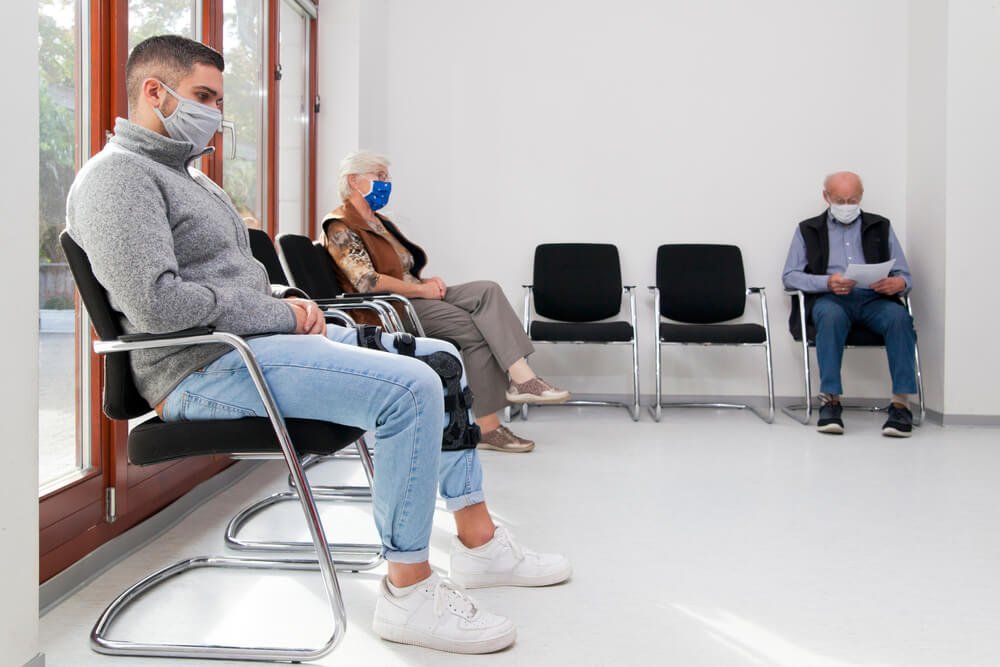NeuroStar® TMS Therapy
FDA-cleared, non-medication depression treatment
Existing Patients For Providers →
(855) 940-4867
For those who have struggled to find relief from depression symptoms, transcranial magnetic stimulation (TMS) therapy is an appealing option. FDA-cleared for major depressive disorder (MDD), obsessive-compulsive disorder, and smoking cessation, TMS is a non-invasive treatment with minimal side effects and a high response rate in patients with treatment-resistant depression.
"Before TMS therapy, I was moody, mercurial, sad, and crying most of the day," says Emily, a Greenbrook TMS patient. "I felt relief from my overbearing, all-consuming depression after my first 20-minute session."
So, does TMS work? With most patients, like Emily, yes. TMS therapy is changing the lives of people with depression symptoms every day. With many patients seeing results immediately or within a few treatments, the question remains: does TMS work long term, and will patients need to return after some time? That answer is a bit more complicated.
Looking at three major TMS studies may be helpful in understanding how we measure success, in both the short and long term.
One of the original studies of TMS, which examined TMS's efficacy and safety in the acute treatment of MDD, was conducted with randomized, double-blinded, sham-controlled trials. In other words, study subjects didn't know if they were getting a real or a fake TMS treatment. All study participants discontinued their antidepressants before beginning the trial, and the technicians administering TMS were told to be emotionally neutral, making the trial sterile and, subsequently, not terribly impressive. Researchers concluded TMS was effective in treating MDD with minimal side effects, and the FDA gave its approval—but many participants who were given the placebo, or fake treatment, were left without any improvement.
Neuronetics, a company that makes one of the TMS chairs that Greenbrook TMS uses, saw an opportunity for a continuation study. They invited participants from the first study to participate in an open-label phase where participants knew they were receiving a real TMS treatment. Study participants were treated with TMS in a real-world setting, not a sterile, emotionless one. Many patients find the very process of TMS therapy to be therapeutic, setting aside time for themselves each day to be greeted by friendly people who are interested in their well-being. Plus, patients were allowed to go back on their antidepressants, suggesting that TMS may provide even better outcomes when used in conjunction with other things that work.
A similar, second continuation study was conducted two years later that followed participants for a year. By this time, results were looking good: After six weeks of TMS therapy, patients had a 62.3% response rate to TMS, and 41.2% of patients experienced remission. A year later, 62.5% of the patients who responded were still better, and 45.1% of those patients in remission were still in remission. Furthermore, 84.2% of patients who benefited from TMS during their first course of treatment but did not achieve remission were found to benefit from TMS during a second course of treatment.
So,
does TMS work long term? For many, the answer is yes. And for others who experience symptoms at some point after receiving TMS therapy, another round of TMS will successfully set them back on track.
More research is needed to understand how to get the full range of benefits from TMS therapy, but based on studies about depression, as well as doctors' and patients' experiences, other therapeutic modalities can encourage and prolong the positive effects of TMS therapy.
1. Antidepressants
Even if antidepressants didn't work for you before TMS, a singular antidepressant can hold your state constant afterward, reducing your risk of depression symptoms returning. Staying on an antidepressant for a year after your course of TMS can be a safe, precautionary way to support your positive response to TMS.
"TMS and medications work best together," says Dr. Don DuBose, Greenbrook TMS's South Carolina Medical Director. "The goal is getting you better, so whatever we need to do to get you there, that's what we do."
2. Talk Therapy
Talk therapy is exceedingly useful in sustaining wellness, even if therapy didn’t seem to help before TMS. Cognitive behavioral therapy (CBT) is one particularly well-supported type of therapy. CBT helps you avoid the pitfalls of cognitive loops that can lead to a circular decline in mood.
3. Lifestyle Changes
If you responded to TMS therapy, then maintaining a normal sleep-wake cycle, getting adequate nutrition, and exercising regularly can aid in keeping you well. Overdoing any of these, particularly exercise, is not the goal; the medical benefits of exercise can happen at modest levels. If your doctor clears you to exercise, you do not need to engage in an extreme regimen. A walk around the block, gardening, or walking your pets all have tremendous health benefits and can help sustain the benefits of TMS.
You can do everything right and your symptoms may still return—that's simply the way depression is. It's important to remember that having depression is not your fault. Still, the more you stay well, the more the wellness pathways in your brain will be strengthened to keep you feeling well.
If you do find that your depressive symptoms are returning after TMS therapy, get back into treatment quickly. Don't let those depression symptoms fester for more than a couple of weeks before you reach out to a TMS center. The Care Team at Greenbrook TMS is ready to hear your concerns and work out a plan to get you feeling better, faster
Take our short quiz to see if TMS therapy or nasal esketamine could be right for you
Subscribe for mental health, self-care, and TMS therapy and nasal esketamine updates for those affected by treatment-resistant depression or OCD.
Thank you for subscribing to our email list!
Oops, there was an error adding your subscription.
Please try again later.
By providing your email address, you are consenting to receive blog updates from Greenbrook TMS Inc. You may unsubscribe from these alerts at any time by following the “unsubscribe” link at the bottom of email alerts. At Greenbrook TMS Inc. we take the privacy and security of your personal information seriously. To learn more about how we protect your personal information, please refer to our Privacy Policy.


Greenbrook supports an accessible internet. If you have any questions about our accessibility features, please contact us at
(855) 940-4867 or info@greenbrooktms.com.
All Rights Reserved | Greenbrook TMS NeuroHealth Centers.